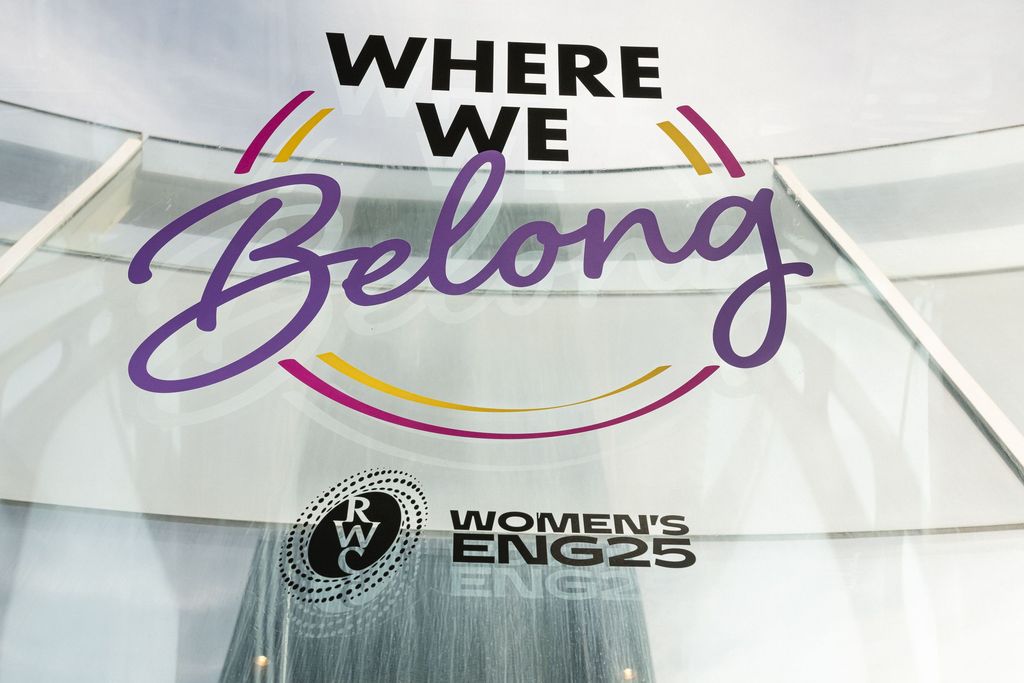Women’s sport in the UK is seeing record viewership and attendances, increasing grassroots engagement, and new professional pathways. But the sector as a whole is missing out on job applicants due to perceptions of ease of accessing careers, according to new research by Women’s Rugby World Cup 2025 (RWC 2025) as part of its ‘Where We Belong’ campaign.
In collaboration with UK Sport, this has led to the development of a pledge which calls for greater inclusion within the sports industry in the UK. The pledge asks for leaders in sport to commit to doing more, strengthening workforce and recruitment practices and championing and providing open access to opportunities for women and underrepresented groups.
Commissioned by Women’s Rugby World Cup England 2025, the research aims to identify key insights that will help future major events and the industry as a whole to unlock their potential. It finds there is widespread interest in sports careers with nearly three in five (59%) adults in Great Britain willing to apply for a job in the sector. However, there are particular challenges for women and people from lower socioeconomic backgrounds.
Just under half (48%) of women say they would apply for a role in sport, compared with over seven in 10 men (72%). It comes as there is a significant gender divide in perceptions of comfort being themselves in a sports workplace (49% of women versus 72% of men) and confidence in having the right qualifications to apply (44% of women versus 63% of men). Men are also more likely to have taken part in initiatives designed to open up sports industry careers (38% versus 20%), highlighting access issues across the sector.
Access to the sports sector can also be challenging according to the research. Despite a majority of respondents saying they find a job in sport appealing, the number is lower when considering if it is “easy” to build a career (39%). In particular, sport is not as desirable for women as other sectors. They are much more likely to find jobs in careers in healthcare (63%), media and entertainment (66%), and education (63%).
There is a stark social economic divide and working in sport is seen as elitist. Just under one fifth (19%) of respondents whose parents did not attend university, (used as a marker for socioeconomic status), think it is easy to build a career in sport. In comparison, three fifths (60%) of individuals who are children of university graduates perceived a career in the sector as easy to pursue.
Perceptions of inclusion also vary widely. Under three fifths (58%) of women and people from a lower socioeconomic background (56%) are likely to think the sports industry welcomes people from all backgrounds, with Asian women showing the lowest perception of all groups (53%). This varies amongst ethnic minority respondents. Black individuals report the highest agreement (87%), compared with two thirds of Asian respondents (67%).
Fairness in recruitment is also questioned by women. Nearly seven in 10 men believe sports organisations recruit fairly from all communities, compared with just over half (55%) of men.
To address the barriers that underrepresented groups face in entering the sports sector, RWC 2025 has provided a series of recommendations. The industry needs:
- Structured and paid pathways into sport so they are accessible without requiring prior industry experience.
- Transparent career progression with clear roadmaps showcasing how to advance in sports careers.
- Accessible recruitment with roles being widely advertised
- Finally, RWC 2025 is calling for sport in the UK to set and report against measurable diversity targets, ensuring real accountability.
Women’s Rugby World Cup 2025 is using the tournament as a platform to help people from underrepresented backgrounds enter the sports industry. The tournament is providing access to careers through internship and volunteering opportunities, providing inclusion training for all staff, and working with partners to advocate for marginalised groups, as well as ensuring social value is an integral part of the evaluation criteria for all tender processes.
The tournament’s senior-level staff and board are both majority female. In addition, RWC 2025 has provided opportunities for women in match day roles, including match officials and commissioners, broadcast commentators, photographers, police commanders and security staff, DJ’s and an all-female groundskeeper crew will deliver the final.
Sarah Massey, Managing Director, RWC 2025 said: “Our research confirms what is widely thought: jobs in sports are not appealing to a wide talent pool. For sporting tournaments like ours, having a diverse workforce is critical. It helps broaden perspectives and to bring in and connect with new audiences. Our research shows that underrepresented groups are less likely to see themselves working in sports. But that doesn’t have to be the case. Leaders and allies across the industry have the power to champion inclusion through intentional action to open up sports and further strengthen our cultures, workforces and recruitment practices.
Esther Britten, Head of Major Events at UK Sport, said: "UK Sport is committed to create as diverse and inclusive a sporting system as possible at every level. Events are an incredibly powerful platform to celebrate and promote the power of our unique differences and Women’s Rugby World Cup 2025 has demonstrated exactly that. We want every sporting event we host to be planned, promoted and developed in an inclusive way. This pledge demonstrates our commitment to use our industry leadership role to accelerate change across sport.”
The full report can be found here.





